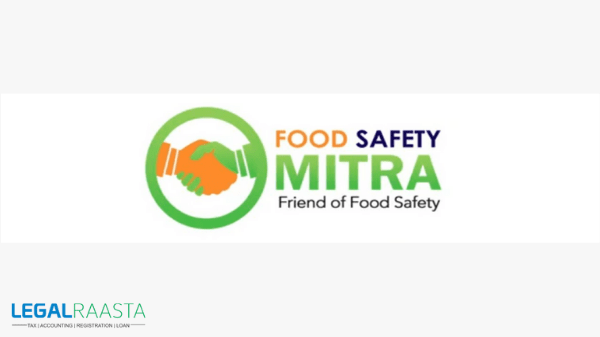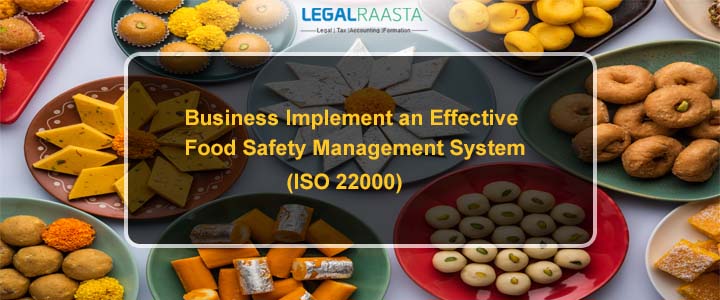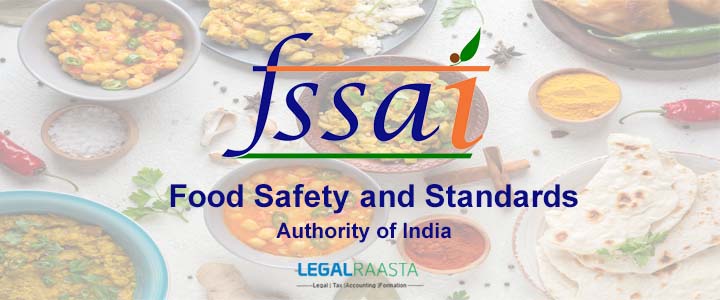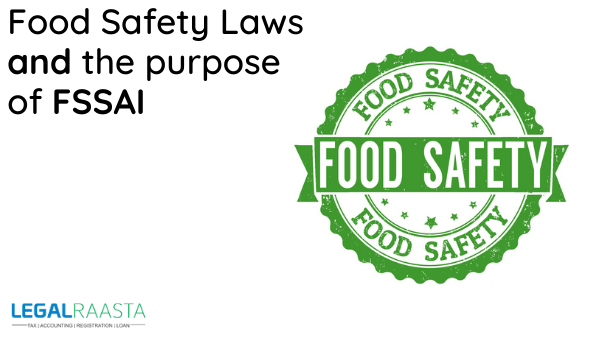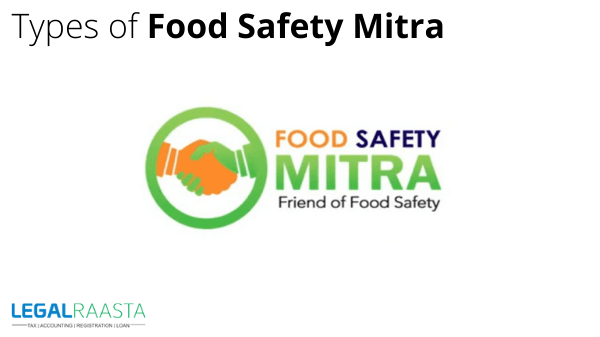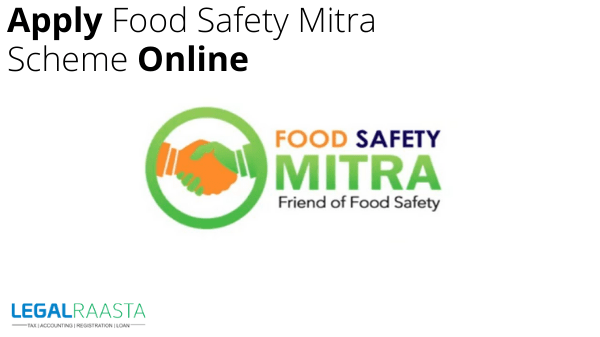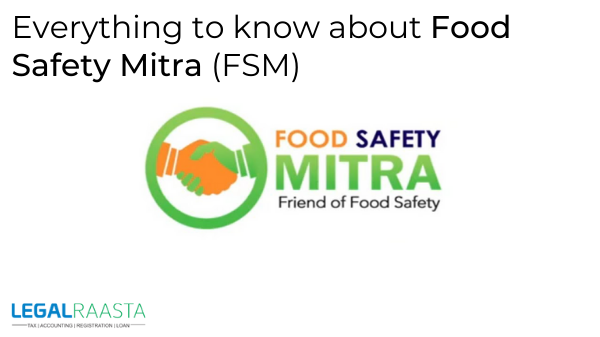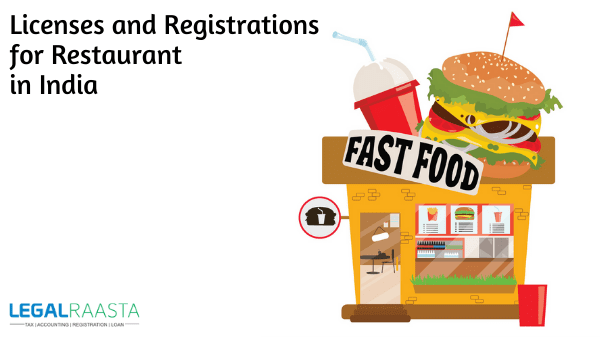Find Food Safety Mitra (FSM) online: Objectives, Eligibility and Registration process
Under the Ministry of Health and Family Welfare, FSSAI (Food Safety and Standards Authority of India) has started the food safety Mitra scheme recently.
The FSM Scheme was basically started to support the small and medium food businesses in compliance with the food safety regulations by giving them license and registration, ratings in hygiene, and facility of training. The scheme aims to provide opportunities for employment to youth in India. Today, we will briefly discuss about the Food Safety Mitra Scheme.
Objectives of the Scheme
Following are the major objectives of the FSM Scheme:
- To provide employment opportunities to the youth that belongs to the background of food and nutrition.
- To ease the performance of the business by making a neat and clear ecosystem that supports the food business.
- To promote enthusiastic people that are interested in this business with the food safety ecosystem at ground level.
Food Safety Mitra: Introduction
An FSM is a person who takes training and is certified by FSSAI to conduct certain operations on behalf of food business operators regarding the execution of the Food Safety And Standards Act, Rules, and Regulations.
Categories
FSSAI has divided the Food Safety Mitra into three categories, namely:
- Digital Mitra
- Trainer Mitra
- Hygiene Mitra
The criterion for Eligibility of Being A Digital Mitra
- The age group of the applicant must be between 21 to 60 years.
- The person who wants to apply must have completed a bachelor’s degree from a renowned university.
- The applicant must know how to operate computers, the internet, etc.
The criterion for Eligibility for Trainer Mitra
Educational Qualification
- The applicant must be a graduate in the following subjects: Science, food, technology, biology, chemistry, microbiology, or any other fields related to these subjects
- If the applicant has a degree in any other subjects, he must have a minimum experience of 5 years in the food and its allied Industries like manufacturing, catering, etc.
Training Experience
The applicant must have at least 3 years of training experience in food safety and hygiene, in which HACCP, FSMS, and any other similar food safety systems are included, which are relevant to the Food Industry.
General Training Received
The applicant must know about the rules and regulations of FSSAI
Skills
- The applicant should have good vocal and motivational skills.
- He/she must be available for training for a minimum of twenty days.
Eligibility Criteria for Hygiene Mitra
- The age of the applicant must be between 21 and 60 years.
- A bachelor’s degree will be required in one or more than one of the following subjects: Oil Technology, Agricultural Sciences, Veterinary Sciences, Hotel Management, Catering Technology, Bio-Technology, Biochemistry, microbiology, Food, Dairy, Fisheries, from a renowned university.
- The applicant must possess information about the rules and regulations of FSSAI.
Keep in mind that the applicants who have the knowledge of hazards identification, sanitary and hygienic activities, techniques of processing, analysis, and control of contaminants and allergens will be given priority.
Roles and Responsibility
Food Safety Mitra has the following roles and responsibilities
Digital Mitra
- He will be responsible for the online filing of applications for license or registration.
- He will be responsible for filing an application that is required for a change in registration or license.
- Filing of yearly returns online.
- Filing of applications related to Product, label, or advertisement Claim.
- He will also be responsible for filing appeals for revocation of licenses or registration that have been suspended.
Trainer Mitra
- He will have to provide training at Eat Right Campuses
- He will have to provide training for food safety supervisors
- He will have to provide training of food safety staff in businesses on demand.
Hygiene Mitra
- Inspection of hygiene according to the guidelines of Food Business Operators (FBO) outlets.
- Helping FBO by application of hygiene guidelines.
- Providing training for supervisors of food safety and food handlers in the subject of hygienic and safe food handling activities.
Process Of Filing Application for Food Safety Mitra Scheme Online
For applying for Food Safety Mitra Scheme, you have to perform the following operations:
Step 1: Go to the website of FSSAI.
Step 2: Click on the “Apply Online” tab which you will be able to see on the home page of the website.
Step 3: Then you have to fill in the online application form with details like personal details, qualification details, contact details, etc. as mentioned on the website
Step 4: Read the terms and conditions after you have filled the form carefully and then click on the “Agree” button.
Step 5: To complete the registration procedure you have to click on the “Register Yourself” button.
For future reference, be sure to take a printout of the application form after you have been registered successfully.
Issuance of Certificate
If you are selected as per the application that you submitted, you will have to finish training online and go for CBT at one of the particular test centers.
After you have completed the project, the Food Safety Mitra will be given a certificate which will be valid for two years. If you provide good service provided as an FSM to the food business operator, you might get chosen to take intermediate training.
Can You Cancel The Certification Of Food Safety Mitra?
Yes, because at the time of certification, an amount of 5000 rupees will be collected from you as a safety deposit. If you want to quit the scheme, then the security deposit will be provided back to you within a certain period of time.
Punishment for Adulteration Of Food As Determined By FSSAI
Adulteration
The definition of adulteration is “adding or subtracting any substance to or from food so that the natural constitution and quality of food substance gets affected”. Adulteration can be intentional by either taking ingredients out of the food or differentiating the existing natural properties of food deliberately. Adulteration might be accidental too, and it might because due to being ignorant, careless, or lack of services needed for the maintenance of food quality.
Punishment for Adulteration
The FSSAI regulations provide various punishments to people who decrease the quality of food or food products, some of them are:
If a person imports, manufactures, stores, sells, or distributes any food products which is adulterated by letting its quality or purity fall below the standard that has been prescribed, or is misbranded, or in breach of any provision of the Act or Rules. The punishment for this crime is imprisonment of at least 6 months that might be extended up to three years and a fine of at least 1000 rupees.
If someone imports, manufactures, stores, sells or distributes any adulterant that is not hazardous to health, then the punishment for that will be imprisonment of six months at least, that may get extended up to 3 years and a minimum fine of 1000 rupees.
Not letting a Food Inspector take samples or exercise his duty will result in imprisonment of at least six months that may get extended up to 3 years and a fine of at least 1000 rupees.
Providing a false warranty (written) regarding any food article will result in imprisonment of six months at the very least, which may get extended up to 3 years and a minimum fine of 1000 rupees
If someone imports, manufactures, stores, sells, or distributes any food product which is adulterated or any adulterant which is harmful for health, it will result in imprisonment of at least one year that might get extended up to 6 years and a fine of at least 2000 rupees.
Sale or distribution of any food product that contains any venomous or other ingredients that are harmful for health, which can become the reason death or major bodily harm will result in the imprisonment of at least three years that might get extended up to life and a fine of at least 5000 rupees.
The procedure of Checking Food Adulteration
The right of execution and application of the FSS Act, 2006 is provided to the State Governments. Samples of food articles are taken by the State Food Safety Officer randomly and provide to the labs that are renowned by the FSSAI for inspection. If there are scenarios in which samples have adulterants, action is taken according to the regulations of the FSSAI Act.
Powers of Food Safety Officer
A food safety officer a person who is authorized to audit if the food products that are being served in hotels or food stalls on the street are safe and secure.
If the food that the officer inspects is not fresh or was spoiled, the FSSAI officer has the power to close the manufacturing of such food and give a warning (written) to the person who was producing such food.
Moreover, a Food Safety Officer can also explore or audit any location with the assistance of the police force. Generally, this kind of inspection is directed or managed by a search warrant that was provided as per the code of penalty.
National Food Processing Policy
The Indian Government created a policy namely the “National Food Processing Policy” for the growth and advancement of the food processing premises sector with the objective of giving a lucrative return to farmers. The major objective of this policy is to bring massive benefits to the economy, agriculture, employment, productivity and increasing the quality of life of people across the country.
Objectives of the Policy
The National Food Processing Policy has the following objectives:
- To make that farmers get lucrative prices while also making sure of the availability of products that have good quality to the consumers.
- To decrease wastage and to raise the efficiency of the market and value-added opportunities
- To take action on the issue of malnourishment by making sure of the availability of foods that are balanced nutritionally.
- To increasing the competition in the food processing sector using the innovation of plenty of infrastructure facilities like the supply chain, use of modern technologies, food safety, increasing traceability, promoting judicious utilization of assets and resources.
- To make India the most preferred investment destination for agriculture and food processing sectors.
- To provide more opportunities for the increment of agriculture and Food Processing Industry, and provide more employment.
Opportunities in FSM Scheme
- Licensing and Registration: The FSM scheme aims to enhance registration by increasing the number of registered food businesses from 32 lakhs to 60 lakhs. The initiative aims to form it easier for people and corporations to take care of compliance and register with the FSSAI.
- Food Safety Training: to enhance the general food safety practices within the country, the FSM scheme will provide the specified training. Therefore, the FSSAI‘s Food Safety Training and Certification program aims to extend the number of trained supervisors from 1.5 lakhs to 10 lakhs.
- Hygiene Auditing: Another critical opportunity offered by the Eat Right India movement is a rise in the number of establishments that undergo hygiene audits. While there are only 600 establishments that undergo such rating audits, the FSM will scale this practice by 100 times.
- Employment Generation: The Food Safety Mitras will make it easier to start food-related businesses in India. As a result, there’ll be a rise in the number of employment opportunities within the food sector, worth a minimum of INR 500 Crores. Even, training and skill development programs will help expand the skill of the workers. All of this may make it easier for such people to seek out jobs within India.
- Ease of Doing Business: Through the Food Safety Mitra scheme, the FSSAI is improving the transparency and accountability of such businesses. Hence, the organized ecosystem will help support and strengthen food businesses. the fast grievance redressal system also will help improve the general simple doing business.
Conclusion
The Food Safety Mitra initiative will act as a marketplace for various stakeholders to meet and learn about one another, thus improving the ease of doing business. The FSMS will also provide a strong last-mile footprint for food regulation and safety. Food Safety Mitra will be a crucial strategic initiative as part of the larger Eat Right India campaign, with 50,000 FSMs expected to be accredited over the next five years.
Obtaining an FSSAI License or an FSSAI Registration will help your food business assure consumers that you are using the safest and best food product and food handling applications and will also help you to stay on the right side of the law. Call +91-8750008585 to get started!
Related Blogs:
Types of Food Safety Mitra: Everything to know about
Food Safety Mitra Scheme Online: How to apply?
Everything to know about Food Safety Mitra (FSM)

